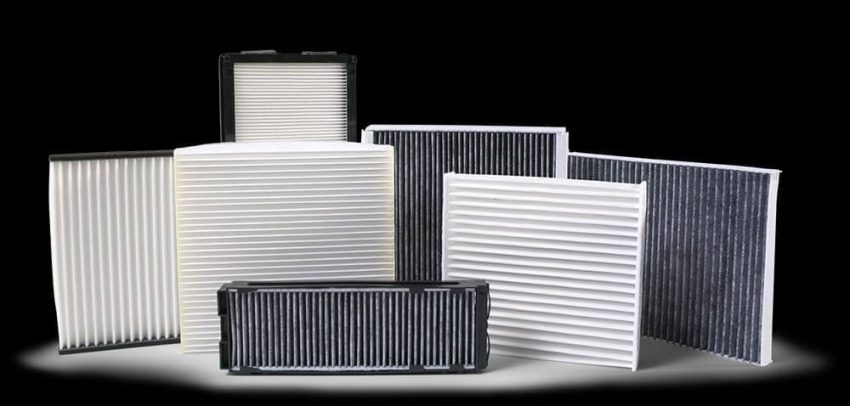Your automobile performs at its peak when the air and fluids are clean. Contaminants that might wear down your engine and transmission are removed by filters. Additionally, they aid in cleaning the air inside your car so that it is safe to breathe. It is crucial to ensure that all of your filters are changed on schedule and that you are familiar with them.

Most people are aware of the existence of the air and oil filters, but current automobiles are equipped with a little more technology than that. In addition to a variety of different filters to safeguard your engine and transmission, they include two air filters: one for the engine and one for the cabin. Because different automobiles have different filters and because each filter probably has a different servicing frequency, it might get complicated.
Take a look at our list of common automotive filters. Your owner’s manual or a vehicle service manual will list all of the specific filters your car has.
THE SEVEN MOST COMMON FILTERS USED IN AUTOMOTIVES
1. FILTERS OF OIL DURING YOUR ENGINE’S LONGEVITY, KEEP YOUR OIL CLEAN
How Does It Act? eliminates impurities and dirt from motor oil to stop them from getting inside your engine and causing premature wear.
How frequently should it be changed? every 3,000 to 5,000 miles on average. To find out the exact interval for you, consult your owner’s handbook.
Were You Aware? Investing in a high-quality oil filter will safeguard your engine more when driving in challenging conditions.
2. TO PROVIDE CLEAN AIR FOR YOUR ENGINE, USE AIR FILTERS
How Does It Act? eliminates impurities and dirt from the car’s air intake system, keeping them out of the engine and saving you money on wear.
How frequently should it be changed? Usually every twelve months or twelve thousand kilometers. To find out the exact interval for you, consult your owner’s handbook.
Were You Aware? Wear comparable to seventy-five thousand kilometers of regular driving might be caused by two aspirin pills worth of dirt.
3. The air you breathe in your car’s cabin is cleaned by cabin air filters.
How Does It Act? filters out dust, pollen, mold spores, and other impurities when air enters your car’s passenger cabin.
How frequently should it be changed? when you replace the engine air filter every twelve months or twelve thousand miles. To find out the exact interval for you, consult your owner’s handbook.
4. By pumping blow-by gases, PCV valves enable exhaust gases to circulate throughout the engine.
How Does It Act? The engine crankcase’s combustion pollutants are eliminated via the positive crankcase ventilation (PCV) valve. Although it isn’t a filter in and of itself, it should be maintained concurrently with the breather filter.
How frequently should it be changed? 12 months in a year or 12,000 kilometers. To find out the exact interval for you, consult your owner’s handbook.
Were You Aware? Not every car has a PCV valve. Select MANAGE MY VEHICLES to determine the necessary items for your vehicle. Should there be any oil in the air box, replace your PCV right away.
5. CLEAN AIR BREATHER ELEMENTS IN THE CRANKCASE OF YOUR ENGINE
How Does It Act? helps regulate crankcase ventilation and lower polluted vapor emissions by cooperating with the PCV valve.
How frequently should it be changed? 12 months in a year or 12,000 kilometers. To find out the exact interval for you, consult your owner’s handbook.
Were You Aware? It takes the least amount of time to change your breather element with every air filter change and guarantees sufficient airflow to maintain the proper intake vacuum pressure.
6. TRANSMISSION FILTERS: IMPROVE THE LENGTH OF YOUR TRANSMISSION
How Does It Act? eliminates dangerous impurities that may shorten your transmission’s lifespan and performance.
How frequently should it be changed? 24 months or 24,000 miles every year. To find out the exact interval for you, consult your owner’s handbook.
Were You Aware? Shift patterns that are erratic or tardy may be the first sign that your transmission filter needs to be replaced.
7. FUEL FILTERS WEAR GAS MILEAGE, ENGINE, AND PERFORMANCE PROTECTION
How Does It Act? eliminates dirt, rust, and other impurities from the gasoline to avoid blocked fuel lines, which can harm your engine and cause poor starting and performance.
How frequently should it be changed? 12 months in a year or 12,000 kilometers. To find out the exact interval for you, consult your owner’s handbook.
Were You Aware? Vehicle stalling or power outage is an early warning sign that your fuel filter needs to be serviced.
